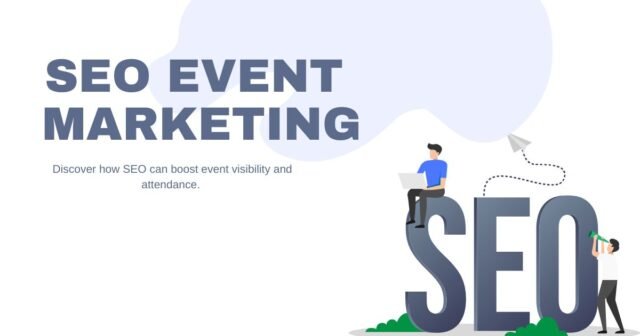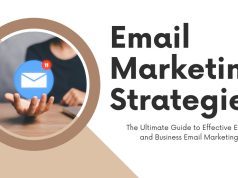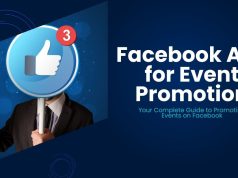Search engine optimization (SEO) is more than just a shiny word. For entrepreneurs who are making use of special events to reach out to their public, SEO can not only drive traffic and boost a business’s visibility but is also an absolute game-changer. Whatever the nature of your event – whether it’s a local charity drive, a virtual seminar, or an international conference meeting–having mastered event marketing is what sets successful planning apart from all else.
Why SEO Matters for Event Marketing
The digital space is crowded, and events, no matter how unique, need to stand out online. People frequently turn to search engines like Google to look for local events, webinars, or conferences. By optimizing your event marketing strategy for search engines, you improve your chances of appearing at the exact time your target audience is looking for what you’re offering.
What happens when your event ranks high on Google?
- More Visibility. Your event gains exposure beyond your immediate network.
- Higher Attendance. By making it easier for people to find your event, you increase registrations or ticket sales.
- Credibility Boost. Search engines reward content relevance. Ranking higher shows potential attendees that your event is worth their time and attention.
Now that we know why SEO is crucial, let’s get into the “how.”
Build an Optimized Event Landing Page
The centerpiece of your SEO event strategy is a well-optimized event page. This will likely be the first stop for potential attendees when they find your event online. Here’s how to make your event page shine.
Write a Compelling Event Title and Meta Description
- Title. Use your main keyword and include the event name and purpose, e.g., “Digital Marketing Summit 2024 – Insights for Growth.”
- Meta Description. Summarize the event in 1–2 sentences with an enticing description, e.g., “Join top marketers at the Digital Marketing Summit 2024 for actionable strategies and networking opportunities. Register today!”
Include Key Event Details
Make sure your landing page includes the following essential information (preferably in an easily scannable format):
- What the event is about.
- Date and time.
- Location (if in-person) or login details (if virtual).
- Highlights, such as speakers, key topics, or workshops.
- Ticket details or pricing tiers.
Use headings (H2 or H3) strategically to divide sections, making it easier to scan while improving your SEO ranking with structured content.
Add Schema Markup
Schema markup is a form of microdata that helps search engines understand your content better. For events, you can use “event schema” to directly showcase critical details like date, location, and call-to-action links in search results. Tools like Google’s Schema Markup Generator can help create event-specific schema without coding expertise.
Conduct Keyword Research
Successfully targeting the right keywords is foundational for any SEO strategy. For events, you’ll need to focus on keywords that reflect the event type, location (if applicable), and audience intent.
Identify Primary Keywords
Search engines rely on keywords to understand page content. For event marketing, target phrases like:
- “Digital marketing webinars 2024”
- “Leadership conferences in Chicago”
- “Free virtual events for business owners”
Leverage Long-Tail Keywords
Long-tail keywords (phrases containing 4+ words) reflect specific search queries. While they may have lower search volume, they typically have higher intent. Examples include:
- “How to register for marketing events in Los Angeles”
- “Small business networking events near me 2024”
Use Keyword Tools
Leverage free or paid tools like Google Keyword Planner, Ahrefs, or SEMrush to identify search trends and high-ranking keywords.
Create High-Quality Content That Attracts Attendees
Content marketing pairs seamlessly with SEO. By creating valuable content around your event, you not only engage attendees but also improve your ranking through consistent use of relevant keywords.
Write a Blog Series
Create a blog series tied to your event theme to build anticipation and attract organic traffic. For example:
- “5 Reasons to Attend the Digital Marketing Summit 2024”
- “Exclusive Sneak Peek at Our Keynote Speakers”
- “How This Summit Can Transform Your Marketing Strategy”
Showcase Thought Leadership
Interview your keynote speakers or panelists and share their insights in a blog post or video. Audiences searching for these experts will land on your page, expanding your reach.
Optimize Visual Content
SEO isn’t limited to text. Optimizing visuals can drive traffic from Google Images and other search platforms:
- Use descriptive alt text.
- Compress images for faster site speeds.
- Include filenames like “virtual-marketing-event-2024-speakers.jpg” rather than generic terms like “image1.jpg.”
Amplify via Backlinks and Social Proof
Backlinks play a critical role in your content’s search rankings. These are links from other trusted websites to yours, signaling to search engines that your event page is credible and authoritative.
Strategies to Gain Backlinks
- Collaborate with event speakers and sponsors, encouraging them to link to your event.
- Share press releases with relevant media outlets.
- List your event on platforms like Eventbrite, Meetup, or local community pages.
Encourage Reviews and Testimonials
After hosting previous events, ask past attendees to share testimonials. Including reviews on your event page adds credibility and builds trust with future attendees.
Don’t Forget Local SEO
If your event takes place in a particular city or region, local SEO is your best friend. Use geo-specific keywords and phrases like:
- “Networking events in San Francisco”
- “Tech expos in Austin”
Also, create a Google My Business listing to ensure details like your event address, contact information, and dates appear in local search queries and on Google Maps.
Track Performance and Optimize
Your SEO strategy doesn’t end once your page goes live. Regularly monitor and optimize your performance using tools like Google Analytics and Search Console.
Track metrics like:
- Organic traffic to event pages.
- Click-through rates for keywords.
- Rankings for primary and long-tail keywords.
- Registrations and conversions via organic search.
Test elements like CTAs, headlines, or meta descriptions regularly to refine your strategy.
Elevate Your Event Marketing Game
The success of an event is often determined by its visibility. By weaving SEO into your event marketing, you are not simply enhancing the number of people attending; you’re also making it so that there is more brand out there, and installing yourself in a greater position atop your niche.
Following the advice in our guide can lead to better range and involvement, but most importantly, it will mean a well-attended event next time around.
We are here to help you produce SEO-friendly content for your event; contact us today if you wish!









